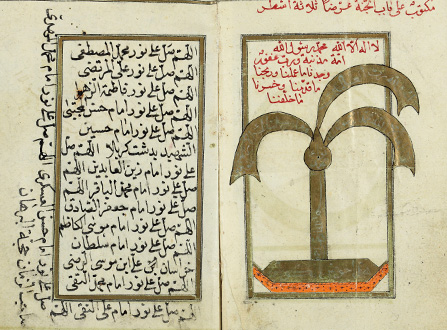""In this timely and important book, Orlin explores a central conundrum in republican history through the lens of religion, namely how the Romans managed to construct a distinctive ethnic identity for themselves while incorporating masses of non-Romans into the citizen-body. He shows how decisions about which foreign gods to admit into the Republic's cult and on what terms erected clear yet permeable boundaries that defined Romanness and at the same time helped to extend Rome's sway over Italy. This work is a must read for anyone interested in Roman ethnogenesis and the foundations of the Republic's imperium."--Nathan Rosenstein, The Ohio State University" ""This is a well-researched and well-written book on a very important topic. Orlin argues that while the boundaries of R̀omanness' in religion (and, one can assume, much else) consistently expanded during the Republic, the Roman elite simultaneously took great care that the expanded boundaries were firm and clear. In terms of foreign cults introduced at Rome, Orlin convincingly proves his case."--Arthur Eckstein, University of Maryland, College Park". ; "Religion is a Particularly Rich Field Within Which to Study Roman Self-Definition, for the Romans considered themselves to be the most religious of all peoples and ascribed their imperial success to their religiosity. Building on the observation that the Romans were remarkably open to outside influences, Foreign Cults in Rome explores how the Romans installed foreign religious elements as part of their own religious system and how that affected their notions of what it meant to be Roman. The inclusion of so many foreign elements posed difficulties for defining a sense of Romanness at the very moment when a territorial definition was becoming obsolete. Using models drawn from anthropology, this book demonstrates that Roman religious activity beginning in the middle Republic (early third century B.C.E.) contributed to redrawing the boundaries of Romanness. The methods by which the Romans absorbed cults and priests and their development of practices in regard to expiations and the celebration of ludi allowed them to recreate a clear sense of identity, one that could include the peoples they had conquered. While this identity faced further challenges during the civil wars of the Late Republic, the book suggests that Roman openness remained a vital part of their religious behavior during this time. The volume concludes with a brief look at the reforms of the first emperor Augustus, whose activity can be understood in light of Republican activity, and whose actions laid the foundation for further adaptation under the Empire."--BOOK JACKET.
| العنوان |
Foreign cults in Rome : creating a Roman Empire / Eric M. Orlin. |
|---|---|
| الناشر |
Oxford New York : Oxford University Press |
| تاريخ الإصدار |
2010 |
| ملاحظات |
Includes bibliographical references and index. |
| رقم الرف |
Introduction -- Foreign cults in Rome -- Cult introductions of the third century -- Foreign priests in Rome -- Prodigies and expiations -- Ludi -- Establishing boundaries in the second century -- The challenges of the first century. |
| الشكل |
xi, 248 pages : maps 25 cm. |
| اللغة |
الانكليزية |
| رقم النظام |
990035929990205171 |
תנאי השימוש:
حظر النسخ
قد يُحظر نسخ المادة واستخدامها للنشر، التوزيع، الأداء العلنيّ، البثّ، إتاحة المادة للجمهور على الإنترنت أو بوسائل أخرى، إنتاج عمل مشتقّ من المادة (على سبيل المثال، ترجمة العمل وتعديله أو معالجته)، بصيغة إلكترونية أو آلية، من دون الحصول على إذن مسبق من مالك حقوق التأليف والنشر ومن مالكي المجموعة.
لاستيضاح إمكانية استخدام المادة، يرجى ملء استمارة الاستفسار عن حقوق التأليف والنشر
معلومات إضافية:
قد تكون المادة خاضعة لحقوق التأليف والنشر و/ أو شروط اتفاقية.
إذا كنت تعتقد/ين أنّه قد وقع خطأ في المعطيات الواردة أعلاهُ، أو أنّك تعتقد/ين أنّ هناك انتهاكًا لحقوق التأليف والنشر بشأن هذه المادة، فيرجى التوجُّه إلينا من خلال الاستمارة التالية.
MARC RECORDS
أتعرفون المزيد عن هذا العنصر؟ وجدتم خطأ ما؟

 سجل الدخول باستخدام غوغل
سجل الدخول باستخدام غوغل
 تسجيل الدخول باستخدام فاسيبوك
تسجيل الدخول باستخدام فاسيبوك



